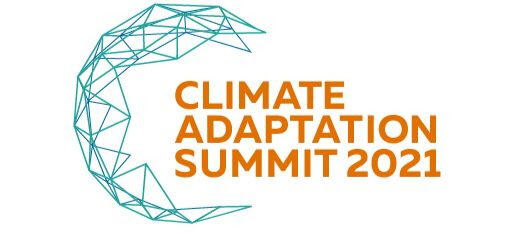Cities, Climate Adaption and Resilience
The example of Miami at the 2021 Climate Adaptation Summit
A guest blog by Chiara Ferro, Geopolitical Analyst at IARI.
Cities and urban areas – many of them in coastal regions – are home to half of the world’s population. Currently 880 million people live in informal settlements that lack sufficient infrastructure, which will face huge challenges regarding electricity, health care, sanitation, education, and clean water.
Nowadays, droughts, heat waves, landslides, storms, and – especially in coastal areas – floods highlight the importance of building resilient cities to reduce the threats resulting from climate change. Therefore, the need to accelerate adaptation in cities and to invest in multi-benefit solutions is higher than ever before. These issues were considered at the January 2021 Climate Adaptation Summit, convened and hosted by the government of the Netherlands. This article considers the contribution to that Summit of the city of Miami, Florida.
Miami is a centre for international trade, banking, hospitality, real estate development and transportation, and the emergent tech and start-up space is growing fast. It is also a coastal city particularly vulnerable to climate change.
Miami has always been vulnerable to hurricanes, storm surge and flooding, with its subtropical climate and coastal location in the Atlantic basin. However, over the past decade Miami’s need to respond to climate change has emerged as a new factor influencing the growth, and the future trajectory of the city. For this reason, Miami is developing resilient infrastructure through its Miami Forever Bond Program. This aims to raise $400 million to support five key areas of reinforced infrastructure - sea-level rise and flood prevention, roadways, parks and cultural facilities, public safety and affordable housing.
The city of Miami aims to work with professional networks, non-profits, private businesses, and other public entities, such as AdvancingCities, Mayor’s Challenge, C40 Cities, and Ocean Conservancy.
Francis Suarez, 33rd Mayor of Miami and Commissioner on the United Nations Global Commission on Adaptation, claims that the Covid-19 pandemic is an opportunity to reform economies worldwide and to implement climate adaptive policies. For instance, improvements in air and water quality during lockdown periods once again highlight the environmental impacts of anthropogenic activities. The pandemic is expected to fundamentally alter how cities are managed and governed in the future. As cities start to recover, their main priority will probably be economic development. Investing in climate adaptation can help cities reduce or avoid future losses, bring social and environmental benefits, and produce positive economic outcomes. For this reason, Mayor Suarez has championed climate adaptation technologies, building practices and economic policies across government.
Mr. Suarez believes that the city of Miami can and must adapt to specific climate change impacts, and considers itself as part of adaptation, focusing on solutions that can deliver immediate relief and tangible benefits to the most vulnerable citizens.
His contribution is a reminder that not all aspects of climate change can be addressed at the national level. The global organisation coordinating climate actions and collaboration between cities, C40 Cities, estimates that 70% of cities are already dealing with the effects of climate change, and nearly all are at risk. Over 90% of all urban areas are coastal. Larger cities consume two thirds of the world’s energy, and create 70% of global CO2 emissions. However, effective collaboration between cities to address these issues is gathering pace.
Further information on worldwide climate action at City level
For further information on worldwide action to promote effective responses to climate change at City level, see for example:
C40 Cities
Includes, for example, London, San Francisco, Sydney, Beijing
Global Covenant of Mayors for Climate & Energy
Local Governments for Sustainability
Includes for example La Paz, Edmonton, Copenhagen, Tshwane, Kyoto
United Cities and Local Governments
240,000 Towns, Cities, Regions, 175 Local & Regional Government Associations
One Planet City Challenge
Involves for example Mexico City, Vancouver, Cape Town, Seoul, Paris, Uppsala
Race to Zero
Involves 454 Cities, 23 regions
"Adaptation Finance in the Context of Covid-19" highlights opportunities for increasing adaptation investment in the period of Covid-19 recovery, and proposes strategies for development finance institutions (DFIs) and governments to promote climate resilience. It describes financial instruments that can be leveraged for recovery and resilience, and highlights the critical role of overseas development assistance (ODA) in financing climate adaptation, particularly for highly climate-vulnerable developing countries.
"Living with water: climate adaptation in the world's deltas" brings together inspiring case studies from around the globe to galvanize governments and citizens to help the half a billion people living in delta communities who are imperiled by climate change. It aims to raise delta adaptation efforts up the political agenda by highlighting significant achievements and good practices where learning can be shared, supporting the policy dialogue on water adaptation and resilience, unlocking avenues for collaboration among policy-makers and technical advisors, and building awareness and capacity.




